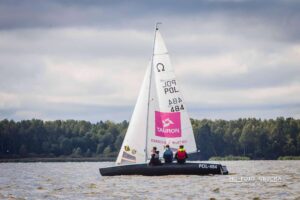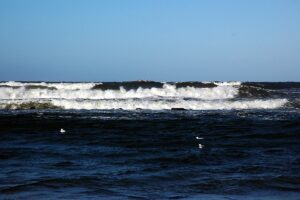– The final decision whether gas and nuclear energy will be regarded as transitional and enabling activities will be made in delegated acts which complement the regulation on the taxonomy – argues Polish Electricity Association (PKEE).On December 5th, 2019 the European Parliament and the Council reached a deal regarding the regulation on the establishment of a framework to facilitate sustainable investment which the most important aim is to introduce an EU-wide taxonomy that sets the criteria to determine whether an economic activity is environmentally sustainable. The Council (COREPER) endorsed this deal on December 18th and the European Parliament will vote on it during its plenary meeting in January 2020. As a result, the regulation will most probably come into force in the first half of 2020.
The taxonomy regulation establishes a unified classification system with harmonized criteria to determine whether an economic activity is environmentally sustainable. It also defines transitional and enabling activities – meaning the ones for which there is no technologically, and economically feasible low carbon alternative and supporting the transition to a climate-neutral economy consistent with a pathway aligned with the Paris Agreement. Two sources of power generation playing an important role in the transition to a climateneutral economy, namely gas and nuclear, are falling into this category of activities.
However, the final decision whether gas and nuclear energy will be regarded as transitional and enabling activities will be made in delegated acts which complement the regulation on the taxonomy. These delegated acts will be adopted by the European Commission probably with the assistance of the Platform on sustainable finance whose main role is to advise the European Commission on the technical screening criteria. There Member States Expert Group will be also established to advise the European Commission on the appropriateness of the technical screening criteria. The aim of these criteria is to determine detailed conditions for the economic activity to be regarded as environmentally sustainable. It is of the utmost importance for these criteria to be established in such a way that gas and nuclear energy will be regarded as transitional as well as enabling activities – for the following reasons:
- Gas-fired (indispensable back-up for RES) and nuclear (stable zero-emission baseload) energy sources help to manage effectively and efficiently the increasing challenges and risks stemming from the growth of intermittent renewables in the generation mix and provide security of supply. Both technologies allow for the change, in a climate-friendly direction, of the energy mix of Member States heavily reliant on coal and lignite.
- Gas-fired power plants will be a key driver for the stabilization of the energy systems with the increasing share of energy from the renewable sources.
- Nuclear energy will play an important role in the future energy mix of the European Union as shown by the European Commission in its 2050 long-term strategy “A Clean Planet for All”1: the share of nuclear energy in the energy mix of the European Union in 2050 will range from 12% to 15%.
- The important role of nuclear energy in the Member States in the context of the right to decide on their energy mixes has been underlined by the European Council in its conclusions dated from the meeting on December 12th, 20192.
Additionally, in case of nuclear energy a transparent and science-based “do not significant harm” assessment has to be made when establishing the technical screening criteria – so as not to exclude a priori nuclear energy from being regarded as environmentally sustainable, taking into account that the industry is actively working on new options to find sustainable solutions to manage nuclear wastes.
In this context, provisions that the European Commission shall assess the potential contribution and feasibility of all relevant existing technologies and the technical screening criteria to be regularly reviewed, are relevant in terms of the sustainable development goals.
PKEE








